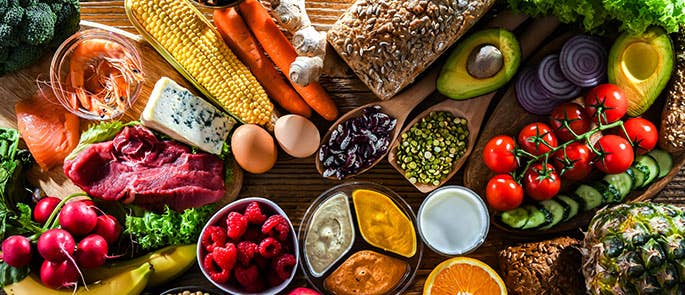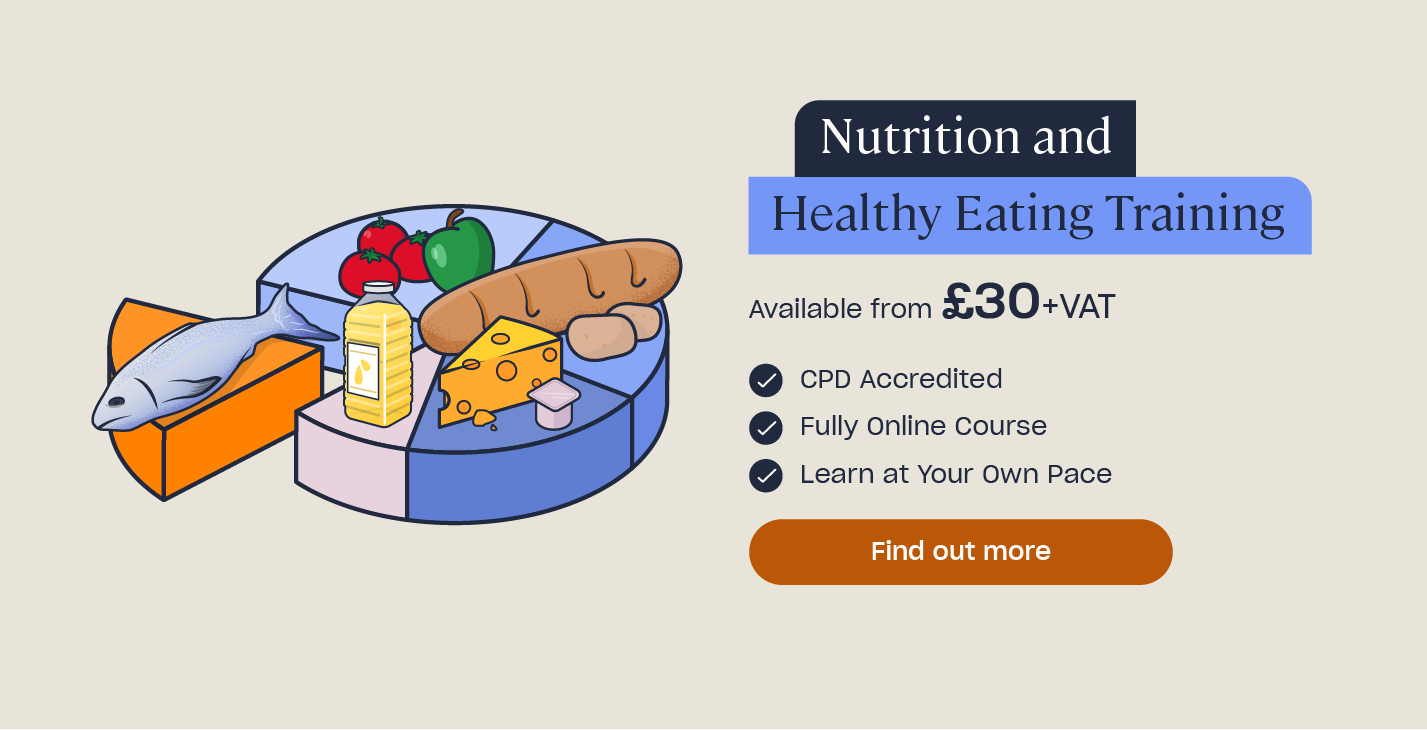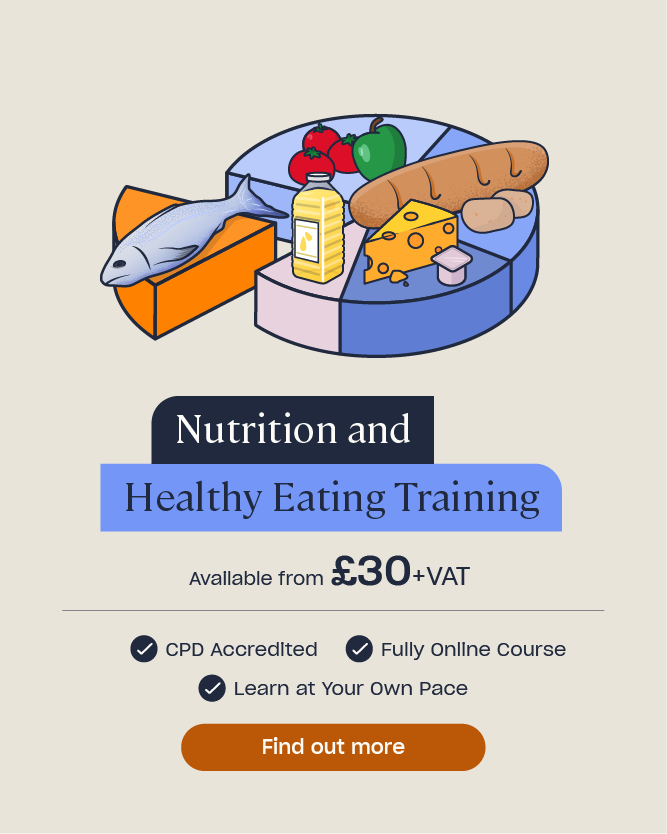The Link Between Food and Mental Health
Maintaining a balanced and healthy diet is important because it helps to ensure you are in good health and feel well. The foods and drinks you consume have a significant impact on whether you develop various health issues and diseases. For example, if you regularly consume foods and drinks that are high in sugar, this increases your risk of tooth decay and obesity. As well as looking after your physical health, you need to be aware of your mental health and take care of it too. Considering both aspects of health will help you to manage your wellbeing and live a healthy and happy life.
In this article, we will look at the link between food and mental health including the impact of what you eat and drink on your mental health. We will provide you with some practical tips to incorporate healthy eating into your daily routine and help to maintain good mental health. It can be challenging to maintain a healthy diet when struggling with mental wellbeing. As such, some of these suggestions may be useful during times when you need solutions which are simple and quick.

Food and Mental Health
Due to numerous factors, people may react differently to the same foods. However, evidence suggests that what you eat and drink can have a significant impact on how you feel and your overall mental wellbeing.
Different foods and drinks have varying impacts on mental wellbeing and it is important that you understand these effects and maintain a healthy, balanced diet when possible. If you were to consistently consume foods and drinks which are considered unhealthy, it is highly likely that you will experience a decline in your mental health.
If you are worried about the relationship you have with food and think you may have an eating problem, help is available. You can find out more information and access guidance on Mind’s dedicated webpage, here.
It’s important to note that someone may find it difficult to eat healthy foods when they are experiencing poor mental health. If you are struggling to eat well because of your current mental wellbeing, it’s ok to choose what is best for you. This might mean having some meals which are convenient and not necessarily highly nutritional during this time. We share some tips for eating healthy when you are struggling with your mental health later in this article.
How Does Eating Healthy Affect Your Mental Health?
Healthy eating can have a positive impact on your mental health. A healthy diet is one which is nutritionally balanced and includes a range of different foods and drinks which contribute to a good diet. You can find out more about what is meant by a healthy diet in our article ‘What is a Nutritionally Balanced Diet and Why is it Important?’.

Evidence shows that various nutrients are essential for physical and mental health and that the consumption of healthy fats and protein enables the brain to function properly. Examples of how your diet affects your mental health include the following:
- If your blood sugar levels are low, you may experience feelings such as irritability or tiredness. To avoid this, you should eat regularly and prioritise foods which release energy slowly, maintaining steady blood sugar levels. Choose wholemeal carbohydrates such as brown pasta, rice and bread instead of white pasta, rice and bread. If your diet doesn’t regularly include foods which slowly release energy, you may find that you start to feel hungry, irritable and/or tired throughout the day. Over time, this can contribute to low mental wellbeing. If you have diabetes, you must not make any changes to your diet that may affect your blood sugar levels without talking to a healthcare professional.
- A high protein diet can help to regulate your thoughts and feelings. Protein contains amino acids which are needed by the brain to produce neurotransmitters to carry out this regulation.
- The NHS recommends eating at least five portions of different fruits and vegetables every day to ensure you get plenty of nutrients to keep you healthy, both physically and mentally.
- Fatty acids, including omega-3 and omega-6, are essential to keep the brain functioning well. These healthy fats are in foods including oily fish and nuts and seeds.
- You may feel bloated, constipated or don’t feel hungry when you experience stress or anxiety. This is because your gut can speed up or slow down when you are experiencing these feelings. To help with healthy digestion, it is recommended that you eat certain foods that are considered good for gut health. This includes fruits, vegetables, pulses, wholegrains and probiotics.
- Hydration plays an important role in concentration and thinking. If you don’t drink enough fluids, you may struggle with concentrating on tasks, lack energy and feel irritable. This can be particularly challenging in both work and social environments and could exacerbate existing mental health issues.
- Drinking too much caffeine can disrupt your sleep and cause feelings of anxiety and depression. Although caffeine initially gives you energy, once this sensation ceases you may experience symptoms of poor mental health. If you become reliant on caffeine and suddenly stop drinking it, you may get withdrawal symptoms such as irritability.
- Alcohol has a significant impact on almost every part of your body, including how you think and feel. It can disrupt the chemicals in your brain that are essential for good mental health. Drinking alcohol affects your brain and nervous system which can make you feel more relaxed and behave recklessly. This chemical change can lead to negative thoughts and feelings, including anxiety, depression and anger. Long-term and excessive alcohol consumption results in a reduction in the number of neurotransmitters in the brain, which are essential for preventing anxiety and impression.
Want to Learn More About Mental Health?
Our Mental Health Awareness Course aims to increase your understanding of common mental health conditions and of your own mental health, including how or when it might suffer, and what you can do about it.
How to Use Foods to Improve Mood and Energy
Whether you are currently experiencing poor mental wellbeing or consider yourself to have good mental health, there are ways in which you can use foods to improve and maintain your mood, energy and overall health. By making healthy eating a habit, you will help to improve your mental health. Here are some practical tips that you may want to adopt:
- Start small to establish a healthy routine that works for you. It takes time to build habits and so you should start by trying to incorporate small changes to your diet and build on these once you have established habits. Taking on too much and making numerous changes at once can be overwhelming regardless of your current mental health.
- Eat at regular intervals. This helps you to maintain your blood sugar levels while avoiding spikes and dips throughout the day. Low blood sugar levels can make you feel tired and irritable, while constant changes to the levels have been linked to anxiety and depression.
- Stay hydrated by drinking enough fluids. The NHS recommends that you aim for 6 to 8 cups or glasses of water, lower-fat milk and sugar-free drinks a day (including tea and coffee). This will help to prevent you from feeling irritable or lacking concentration.
- Aim to have five fruits and vegetables a day. You can find out what this includes on the NHS website, here. You may find it difficult to achieve this if you’re experiencing poor mental health, but remember that frozen and tinned fruit and vegetables count too.
- Recognise the impact certain food and drinks have on your mental health. One way to do this is to keep a diary of what you eat and drink and record how you feel afterwards.
- Reduce your intake of stimulants such as caffeine, particularly in the hours leading up to your bedtime. Although it is a depressant, alcohol can have a stimulant effect initially and when consumed in small doses. Both caffeine and alcohol have been linked to low moods in some people.
- Plan in advance. For example, keep some batch made meals in your freezer for when you don’t feel able to cook something healthy from scratch. Many nutritional foods can be frozen or have a long shelf life, such as beans and legumes. Maintain a supply of these for when you need to put together a healthy, easy meal. You could also write a list of recipes that you have followed before to create a quick, easy and healthy meal, so you can refer to these when needed.
- Make cooking and eating an enjoyable experience. See this as an opportunity to explore new ingredients and foods which you haven’t had before, and to learn new culinary skills. Cook with your partner, friends or family or take it in turns cooking something for one another. Remember that your loved ones want to support you and that if you don’t have the energy or are unable to cook or purchase food, you can ask for help.
- If you need to keep things simple, try some one-pot meals or follow recipes that are intended to be quick and easy. Making a nutritional meal doesn’t have to require hours of time to prepare and cook. There are many cookbooks which specialise in meals that take less time, use fewer ingredients or can be made in one pot. You can also find recipes online that meet your specific criteria.
- If you’re an inexperienced cook, lack inspiration or are on a budget, there are plenty of free resources available online. BBC Good Food is a useful website with recipes, videos, guidance and information.

It can be difficult to keep to a healthy diet if you are experiencing poor mental health. Remember that it’s ok to eat and drink what feels manageable for you. While regularly consuming food and drink which is high in fat and/or sugar and has little nutritional value will impact your mental health and physical wellbeing, having it occasionally isn’t going to be detrimental to your long-term health and wellbeing.
Although people react differently to different foods, there is a clear link between diet and mental health. Eating a balanced diet ensures that you get all the nutrients you need to function and develop properly, including those required for the brain. In turn, this reduces the likelihood of you experiencing unwanted emotions such as irritability, tiredness and anxiety. To help you understand how the different foods you eat impact your mental wellbeing, consider what you feel after having consumed them.
Further Resources:
- Reading and Mental Health: What are the Benefits?
- The Benefits of Exercise on Mental Health
- The Healthy Eating Pyramid
- What is a Nutritionally Balanced Diet and Why is it Important?








